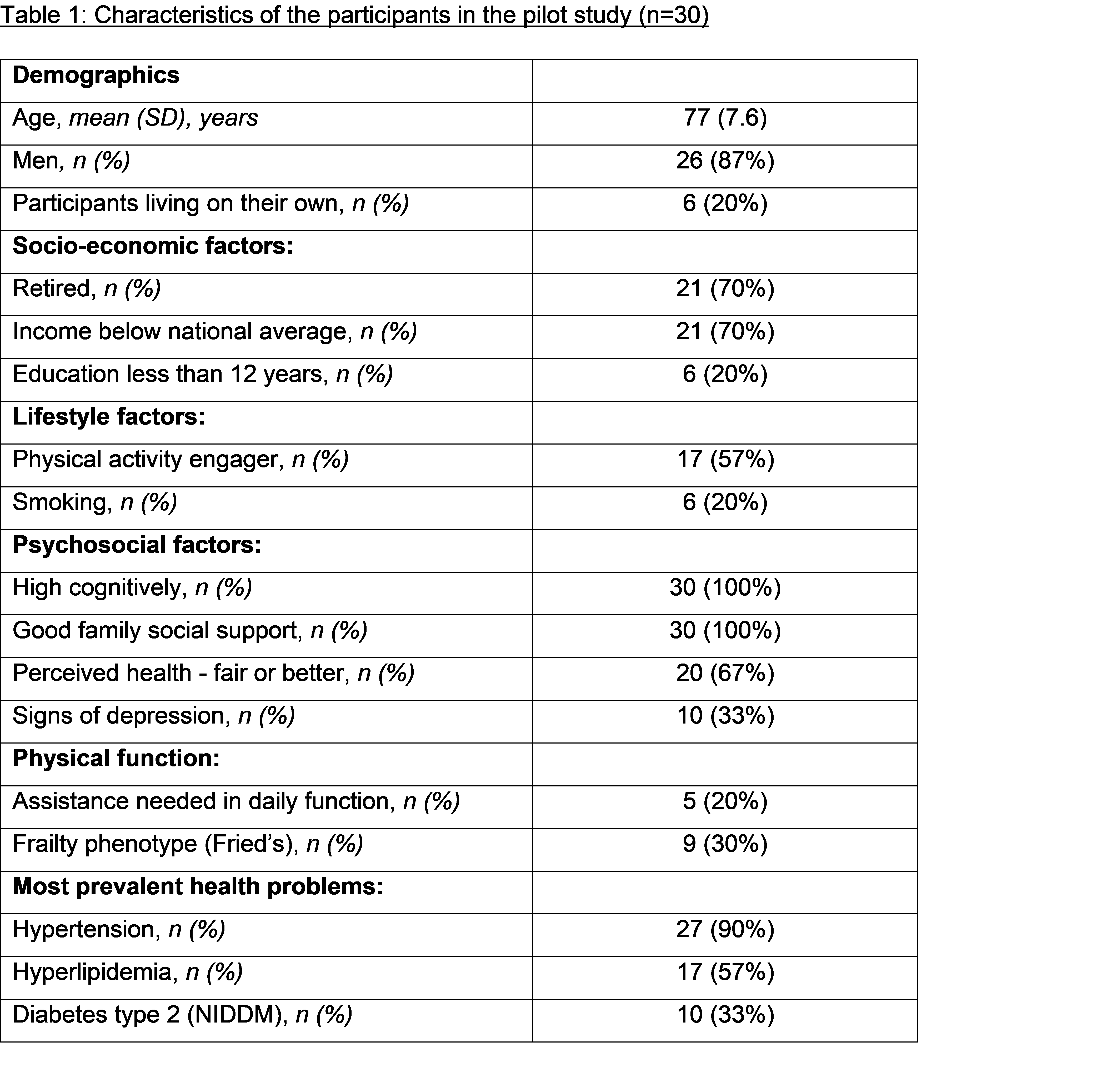
The Sixth Follow-up of the Israel Study of First Acute Myocardial Infarction. A Pilot Study
2Division of Psychiatry, Chaim Sheba Medical Center, Tel Hashomer
3Bob Shapell School of Social Work, Tel Aviv University
Background: The Israel Study of First Acute Myocardial Infarction is a prospective cohort study of patients aged ≤65 years (n=1545) with first myocardial infarction (MI) in 1992-93. Interviews were conducted 1 week after hospitalization (T1), and 4 follow-up interviews at 3-6 months (T2), 1-2 years (T3), 5 years (T4), and 10-13 years (T5). Data were gathered by interviews, questionnaires, and patient medical records. Approximately 600 subjects have survived to present date.
Objective: To describe the pilot study conducted between September and November 2018, marking the beginning of the sixth follow-up.
Methods: This study has been approved by ethics committees at Sheba Medical Center and Tel Aviv University. Participants (n=30) were interviewed in their homes. Current data on socio-demographic, clinical and lifestyle factors were obtained through a detailed questionnaire, as done in previous follow-ups. In addition, a Comprehensive Geriatric Assessment was carried out using specific questionnaires to evaluate physical, cognitive and psychosocial function. Anthropometric measurements were also taken.
Results: The participants mean age was 77 (range, 63-91) years. An average interview lasted an hour and a half. All (n=4) women lived on their own, whereas 24 (92%) of the men lived with a steady partner or had a caregiver. The majority of participants were retired, had 12 years or more of education and had an income below the national average. More than half engaged in physical activities. All the participants were highly cognitive and with good family support. Additional characteristics are listed in Table 1.
Conclusion: Most participants in this pilot were independent, active and with good family support. The interview was well accepted by the study participants and will allow assessment of long term trajectories of socio-demographic, psychosocial, clinical and lifestyle factors.


Powered by Eventact EMS